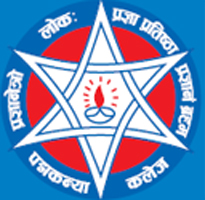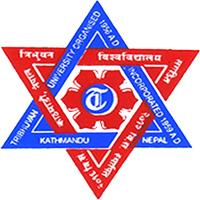Overview
MA in Political Science at Active Academy College, Basundhara, Kathmandu
Overview
MA in Political Science at Active Academy College, Basundhara, Kathmandu runs under Tribhuvan University, Faculty of Humanities and Social Sciences. The program follows the master’s semester system and covers core political theory, public policy, governance, comparative politics, and Nepal-focused studies. Students work through courses and guided writing tasks that match the official syllabus for the degree.
Highlights
-
Affiliation: Tribhuvan University, Faculty of Humanities and Social Sciences
-
Structure: Two years, four semesters; core and elective papers with research/report components
-
Focus Areas: Political theory, public administration, international relations, comparative government, Nepal’s constitution and institutions
-
Assessment: Internal tasks and semester-end examinations as per faculty rules
Curriculum Details
Students study foundational papers in political theory and methodology, then move to thematic and region-specific courses. The syllabus includes courses on constitution and government, public policy, political economy, and research methods, with electives offered within the department’s approved list. A term paper or thesis/report component appears in senior semesters under supervision.
Objectives
-
Build a strong base in theory and method for analyzing state, power, and policy.
-
Develop the habit of reading original texts, government documents, and scholarly articles.
-
Prepare students for roles that require careful writing, evidence use, and public-sector awareness.
Scope
Graduates work in policy support units, research assistance, local governance projects, civil society organizations, and media analysis roles. Many prepare for public service exams or move to MPhil/PhD after gaining experience in research or program coordination.
Learning Outcomes
-
Interpret key traditions in political thought and connect them to Nepal’s governance setting.
-
Analyze institutions, elections, and public policy using reliable data sources.
-
Write structured briefs and position notes that support evidence-based discussion.
Skill Development Modules
-
Policy Reading: Close reading of acts, rules, and budget documents.
-
Methods Basics: Research design, citation, and simple data handling.
-
Writing Clinic: Memos, reviews, and concise analytical notes for class submission.
Teaching Methodology
Active Academy runs lectures, seminars, guided reading, and supervised writing. Faculty members share weekly plans, hold discussion sessions, and provide feedback on drafts. Attendance is mandatory under TU rules, and students maintain a steady submission schedule for internal tasks.
Admission Requirements
-
Eligibility: Bachelor’s degree in any recognized field as accepted by TU
-
Entrance/Screening: Faculty/department entrance if announced for the intake year
-
Documents: Application form, academic transcripts, character certificate, migration (if applicable), citizenship/ID, photographs
Career Opportunities
-
Public Sector: Policy and program support roles subject to recruitment norms
-
Research/Media: Research assistant, editorial support, fact-checking, or data compilation
-
Civil Society/Projects: Governance, civic education, and documentation roles with NGOs and agencies
Scholarships and Financial Aid
-
Merit-Based: Grade-linked waivers linked to performance and conduct
-
Need-Based: Support for low-income households with verified proof
-
Inclusion/Talent: Consideration for underrepresented groups and documented achievements
-
Renewal: Annual or semester-wise review under campus rules
Why Choose This Course?
-
Policy Literacy: Courses engage directly with Nepal’s constitutional and administrative structures.
-
Structured Path: Semester system with defined progression and assessments.
-
Writing Practice: Regular memos and short papers strengthen analytical clarity.
Conclusion
MA in Political Science at Active Academy College follows TU’s semester framework and links theory to Nepal’s governance context. Students learn how to read laws, examine institutions, and write clear analyses that support public discussion and professional pathways.



















